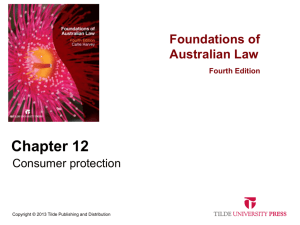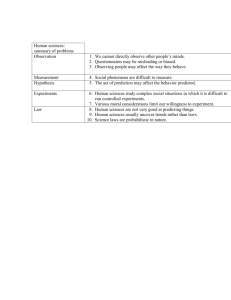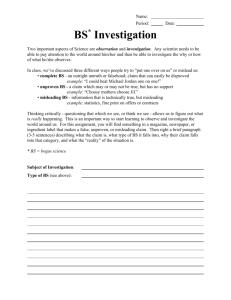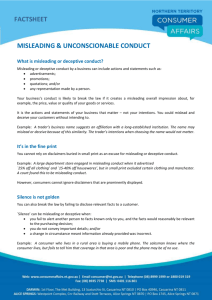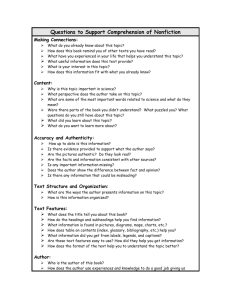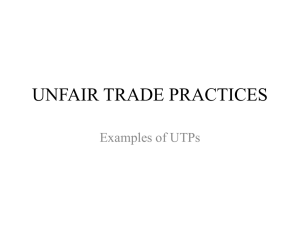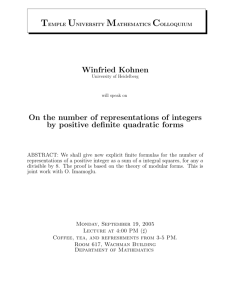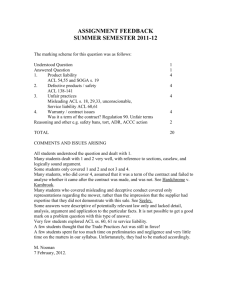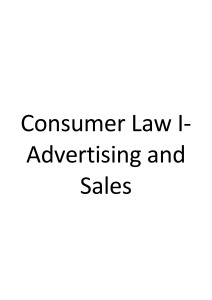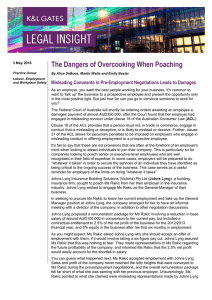word
advertisement
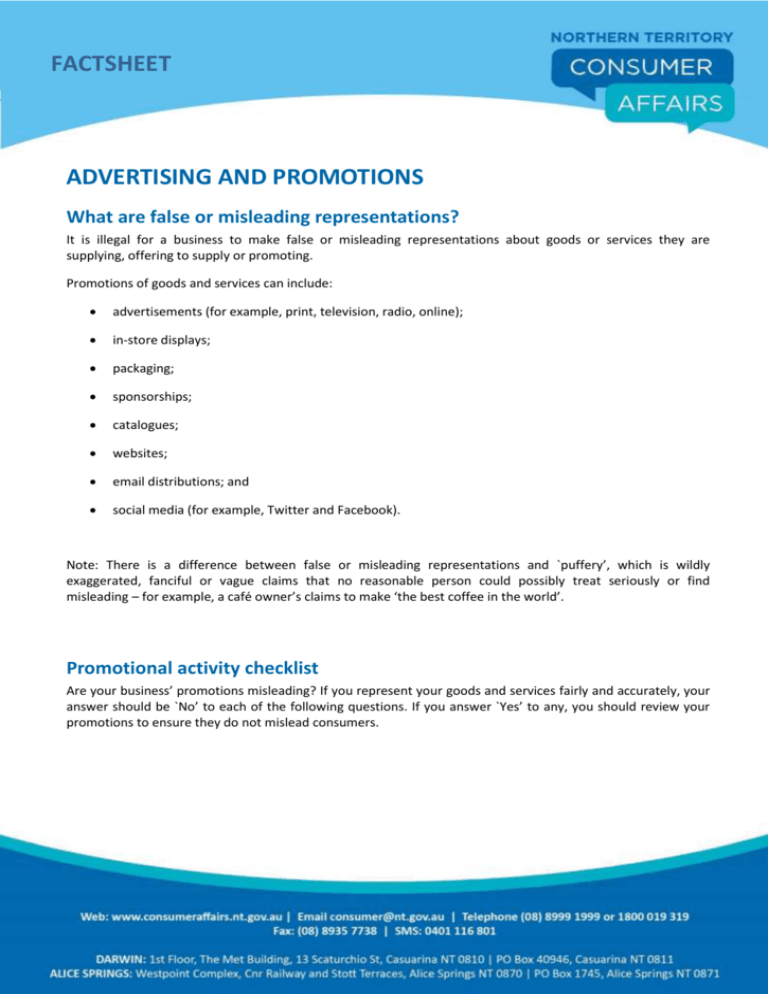
FACTSHEET ADVERTISING AND PROMOTIONS What are false or misleading representations? It is illegal for a business to make false or misleading representations about goods or services they are supplying, offering to supply or promoting. Promotions of goods and services can include: advertisements (for example, print, television, radio, online); in-store displays; packaging; sponsorships; catalogues; websites; email distributions; and social media (for example, Twitter and Facebook). Note: There is a difference between false or misleading representations and `puffery’, which is wildly exaggerated, fanciful or vague claims that no reasonable person could possibly treat seriously or find misleading – for example, a café owner’s claims to make ‘the best coffee in the world’. Promotional activity checklist Are your business’ promotions misleading? If you represent your goods and services fairly and accurately, your answer should be `No’ to each of the following questions. If you answer `Yes’ to any, you should review your promotions to ensure they do not mislead consumers. Yes Attributes of the goods or services Does your promotion make false or misleading representations about: the standard, quality, value or grade of the goods or services? the composition, style, model, or previous history or use of the goods? whether the goods are new? the performance characteristics, accessories, approval, benefits and uses of the goods or services? the customer’s need for the goods or services? Predictions and opinions Does your promotion contain promises, opinions and predictions that you: know are untrue or incorrect? have no reasonable grounds for making? Featured people Does your promotion make false or misleading representations about: a particular person agreeing to purchase the goods or services? testimonials by any person relating to the goods or services? the sponsorship of the goods or services? Pricing Does your promotion contain multiple prices for the same goods? If yes, you must either: sell the goods for the lowest ‘displayed price’; or withdraw the goods from sale until the price is corrected. Does your promotion contain a price that is only part of the cost, without also prominently advertising the single (total) price (also known as ‘component pricing’)? Have you promoted your goods at a certain price, without a reasonable supply throughout all your stores for customers to buy (also known as ‘bait advertising’)? Place of origin Does your promotion make false or misleading representations about the country of origin of goods (for example, where it was made, transformed, produced or grown)? Warranties and guarantees Does your promotion make false or misleading representations about: any guarantee (especially the consumer guarantees), warranty or condition on the goods or services? See the Consumer Guarantees factsheet for more information. the requirement to pay for any guarantee (especially the consumer guarantees), warranty or condition on the goods or services? the availability of repair facilities or spare parts? Fine print Does your promotion make false or misleading representations in a disclaimer or small print? Rebates, gifts and prizes Does your promotion offer rebates, gifts, prizes or other free items that you do not intend to provide within the specified time or, if no time was specified, within a reasonable time? Other business activities Does your promotion of a business activity that requires work or investment by a person make false or misleading representations about the profitability, risk or other material aspect of the business activity? No Have you forgotten something? You can also break the law by failing to disclose relevant facts to a customer. `Silence’ can be misleading or deceptive when: you fail to alert the audience to facts you know which are relevant to their decision to buy your goods or services; you do not convey important details to the audience; and a change in circumstance meant information already provided was incorrect. For more information on your obligations under the Australian Consumer Law (ACL), refer to: ACL: Sales practices – a guide for business and legal practitioners ACL: Avoiding unfair business practices – a guide for business and legal practitioners.
